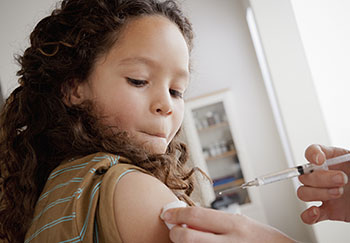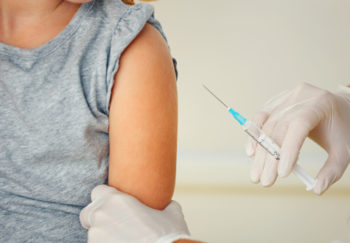
Leigh B. Grossman, MD, contributed this guest post. She specializes in pediatric infectious disease and is the editor of a new book, “A Parent’s Survival Guide to Daycare Infections,” that is now available in bookstores and online.
When My Parents Were Growing Up (1930s)
When my parents were growing up in the 1920s and 1930s, measles, mumps, diphtheria, whooping cough (pertussis), lockjaw (tetanus), scarlet fever, meningitis, pneumonia, bloodstream infections, hepatitis and influenza were everyday threats to ordinary people. If that generation had been told that they could prevent these infections, they would have jumped at the opportunity, as any child could easily acquire these germs from other people or their normal environment, and they knew that.
When I Was Growing Up (1950s)
When I was growing up in the 1950s and 1960s, vaccines against diphtheria, pertussis, and tetanus were in widespread use and the polio, measles, mumps and rubella (German measles) vaccines were being developed and once introduced, required preventive strategies for children. The remarkable and rapid decreases in epidemic and individual disease numbers were incredible. We saw diseases prevented that have no targeted therapy and thus, the potential for devastating infection all but disappear.
When My Children Were Growing Up (1980s)
When I was in training in the 1970s and 1980s, infants and children were admitted to the hospital each day with meningitis, bloodstream infections, pneumonia, hepatitis and influenza. As a pediatrician and a new parent, I was eager to prevent any of these infections in my own children and counseled my patient’s parents to obtain these vaccines for their children. Immunizations would prevent these infections and the deaths and devastating life-long consequences associated with these diseases such as cerebral palsy, developmental delays, hearing loss, and blindness.
Today (2016)

As an infectious disease doctor, I continue to counsel parents in the United States on the benefits of knowing that they have done everything they can to prevent these devastating and life-threatening infections by immunizing their children. I also teach and treat patients in the developing world, and it is painful to see adults and children in 2016 still dying of lockjaw (tetanus), meningitis, hepatitis and pneumonia because the preventive vaccines are not available to them in many of the countries where I serve and teach. These parents would walk days to obtain these vaccines for their children or themselves if they were only available!
Unvaccinated Children Remain At Risk
And yet, the common germs that are still in the United States and continue to be risks to our children, are being viewed by many parents as non-threats and not worth vaccinating for. Children continue to be exposed to many of these germs right here at home (tetanus, whooping cough, mumps, measles, meningococcus, hemophilus influenza, pneumococcus, rotavirus). And, as the world becomes smaller and our children grow up, they:
- Will be exposed to children from all over the world
- Will ultimately travel to other countries
- Will come into contact with these vaccine preventable germs
- And, if unvaccinated, they will have no protection.
Vaccine risks are small by comparison to the risks of severe, life-threatening disease.
Many parents worry about the risks of vaccination for their children, whether that be sore arms or fevers from the vaccine, or the potential for neurological problems that can include extreme irritability, seizures and developmental problems. None of us want to expose our normal, healthy children to anything that could make them sick.
Get Your Kids Vaccinated
See the recommended vaccine schedules through age 18.
Don’t have a doctor? Find a pediatrician in central Virginia.
However, by not vaccinating, considering the very low risk of untoward side effects of our currently available vaccines, these same parents are making another decision — the one that keeps their children at risk of acquiring an infection with potentially devastating consequences. Nothing we do or expose our children to is without risk — playing sports, riding in a car or on a school bus, climbing a tree, riding a bicycle or a horse, swimming, playing sports or even eating certain foods. They all carry risks. However, we expose our children to all of these dangers because we want them to grow up and lead normal, full lives.
Vaccine preventable infections should be prevented! We have lost our understanding of what life-threatening and devastating infections we now prevent with these incredibly effective vaccines that we are so fortunate to have. These germs are still common:
- Chickenpox
- Diphtheria
- Hemophilus influenzae (bloodstream infection, meningitis)
- Hepatitis A and B
- Human Papillomavirus (cervical/uterine cancer)
- Measles
- Meningococcus (bloodstream infection, meningitis)
- Mumps
- Pertussis (whooping cough)
- Pneumococcus (pneumonia, ear infection, bloodstream infection, meningitis)
- Polio
- Rotavirus (diarrhea in infants)
- Rubella (german measles)
- Tetanus (lockjaw)
How fortunate are we that we can prevent these infections in our children!


My cousin did not immunise her child , she is 5 years old.
What are her risks of contracting the corona virus or perhaps any kind of virus.